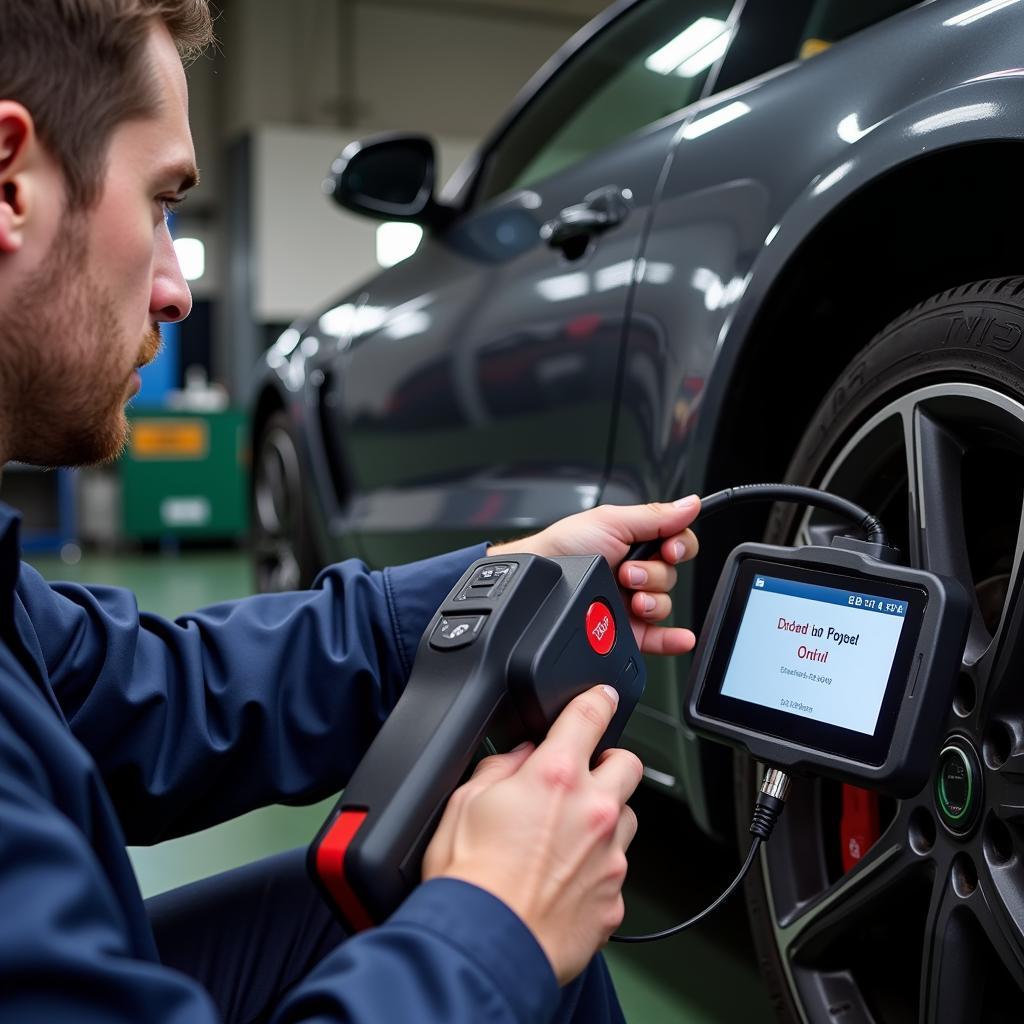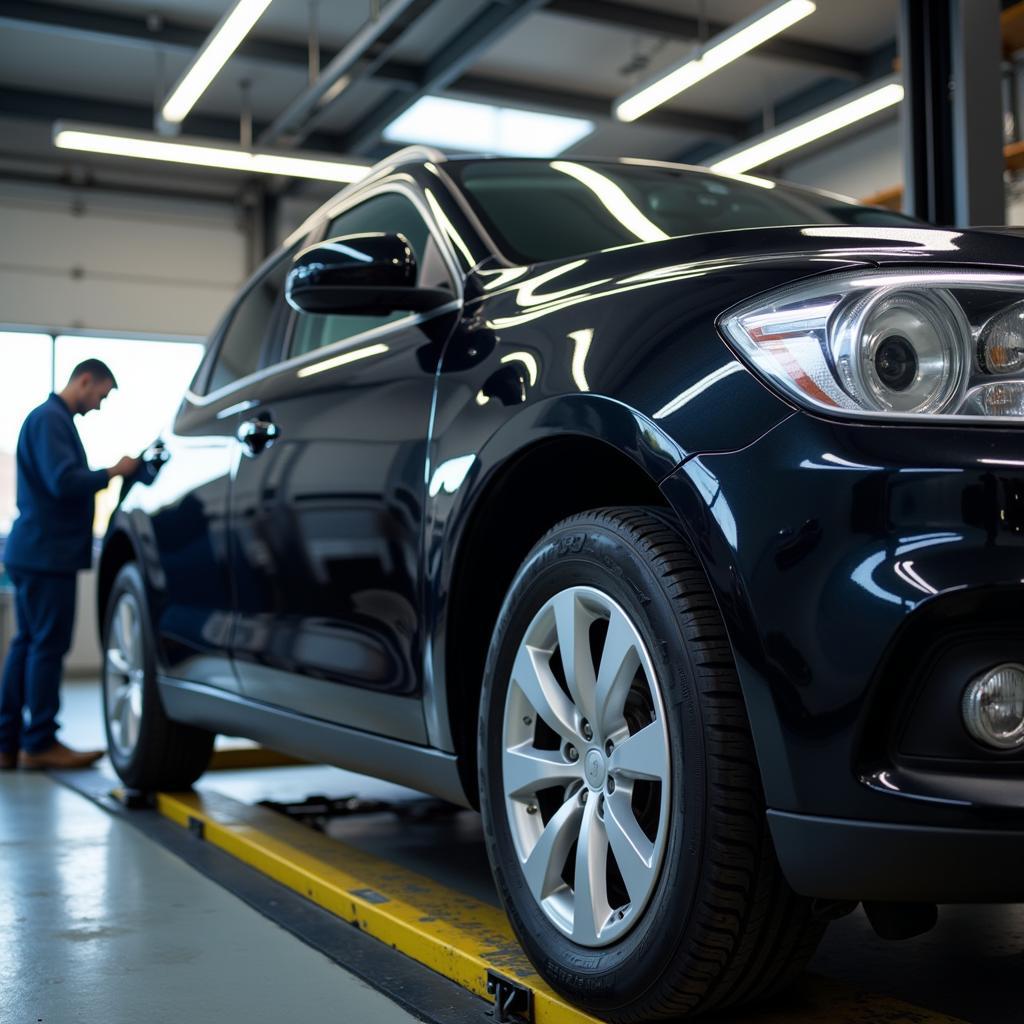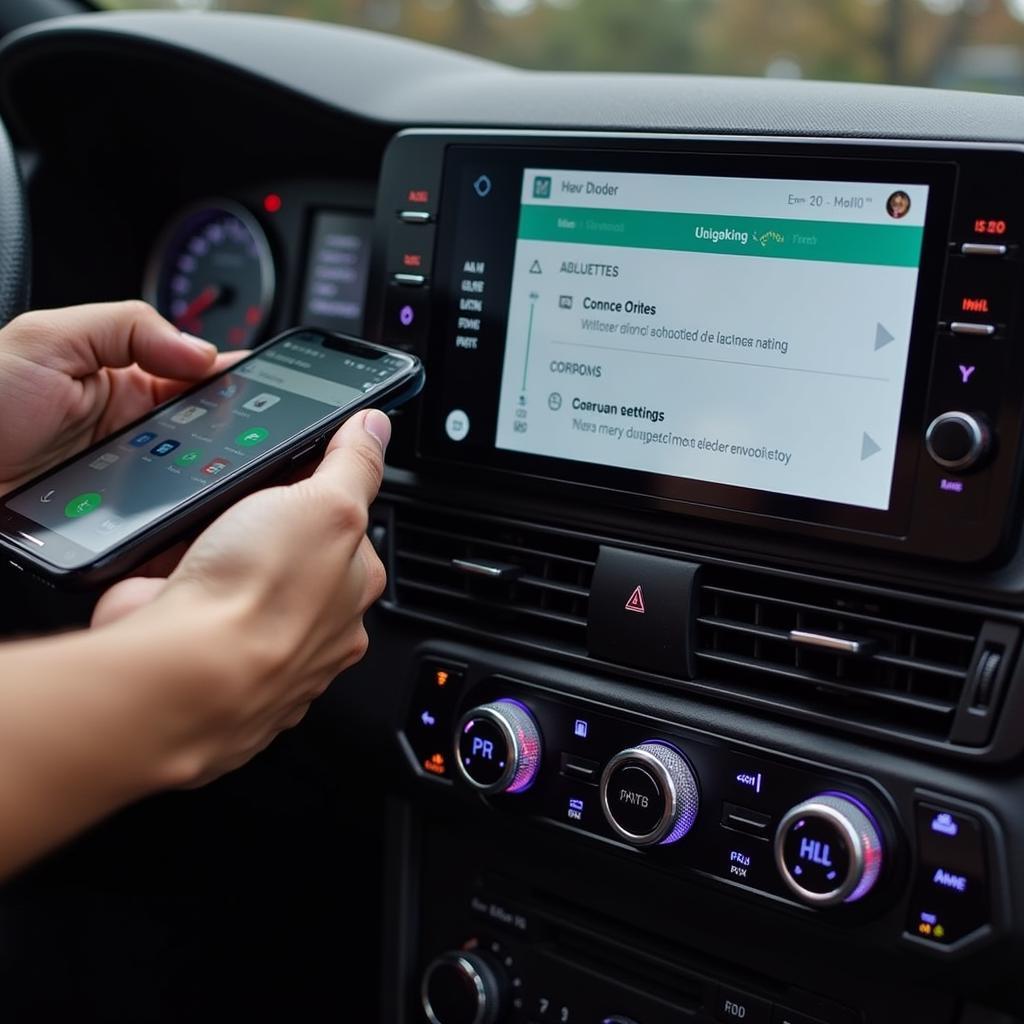The dreaded “strike without warning tuner brake” issue. It can leave you feeling powerless, stranded, and unsure of what to do next. While this specific phrase might seem unusual in the context of automotive issues, it likely points to a problem within your car’s tuner, specifically impacting the brake system. This issue is more common in vehicles with aftermarket performance modifications, particularly those using “tuners” to adjust engine and braking parameters for increased performance.
Understanding the Connection: Tuners and Your Brakes
Before we delve into troubleshooting, let’s clarify the relationship between a tuner and your car’s brakes. A tuner, in the automotive world, is a device used to modify your car’s engine control unit (ECU) settings. This modification can optimize various parameters, including fuel-to-air ratio, ignition timing, and even boost pressure in turbocharged engines. While not directly controlling your brakes, tuner modifications can indirectly impact braking performance.
How can a tuner cause brake issues? Imagine your tuner modifies your engine to deliver significantly more power. This increase in power might not be matched by your existing brake system, leading to longer stopping distances and a feeling of the brakes “not working” as effectively.
Furthermore, some tuners allow adjustments to throttle response, making your car feel more sensitive to accelerator inputs. While this might sound appealing for performance, it can also make the car feel “touchy,” potentially leading to unintended acceleration and making braking smoother a challenge.
Common Causes of “Strike Without Warning Tuner Brake” Issues
Several factors can contribute to the feeling of your brakes striking without warning after a tuner installation:
- Improper Tuner Settings: Incorrectly configured tuner settings are among the most common culprits. If the tuner modifies throttle response without considering the brake system’s capacity, you might experience sudden braking sensations.
- Faulty Brake Components: While the tuner might be the trigger, pre-existing wear and tear on your brake components, like worn brake pads or a failing master cylinder, can exacerbate the issue.
- Vacuum Leak: Some vehicles utilize engine vacuum for brake assist. A leak in this system can cause inconsistent brake pedal feel and unpredictable braking performance.
- Software Glitches: Like any software, tuners can experience glitches or errors in their programming. Such errors can disrupt communication between the tuner and the car’s ECU, leading to unpredictable behavior, including brake-related issues.
Troubleshooting Your Tuner Brake Issue
Before you rush to a mechanic, here are a few troubleshooting steps you can try:
- Check Your Tuner Settings: Start by revisiting your tuner settings. If you’ve recently adjusted any parameters related to throttle response or engine power, try reverting to the previous settings or factory defaults. This step alone might resolve the issue.
- Inspect Your Brakes: Conduct a visual inspection of your brake components. Look for signs of wear and tear, such as excessively worn brake pads, leaking brake fluid, or damaged brake lines.
- Scan for Error Codes: Most modern vehicles have onboard diagnostic systems (OBD-II). Use an OBD-II scanner to check for any error codes logged by your car’s computer. These codes can provide valuable insights into the root cause of the problem.
 Mechanic Using OBD-II Scanner
Mechanic Using OBD-II Scanner
When to Seek Professional Help
If troubleshooting doesn’t yield results, seeking professional help is crucial. A qualified mechanic specializing in both automotive electronics and performance modifications can accurately diagnose the issue. They can analyze your tuner settings, inspect your car’s braking system, and recommend the appropriate course of action.
“Remember,” says automotive electronics expert John Smith, “a well-tuned car is about finding the perfect balance between power and control. Ignoring brake issues can have serious consequences.”
Preventing Future Tuner Brake Problems
Prevention is always better than cure. Here are a few tips to minimize the risk of encountering tuner brake issues in the future:
- Choose Reputable Tuners and Installers: Opt for well-known tuner brands and seek installation from experienced professionals who understand the intricacies of performance tuning.
- Gradual Tuning: Avoid drastic changes to your car’s settings all at once. Incrementally adjust your tuner settings, allowing you to evaluate their impact on braking performance.
- Regular Maintenance: Adhere to your car’s recommended maintenance schedule, paying extra attention to the braking system. Regular brake inspections and fluid flushes can prevent many issues.
 Car Undergoing Brake Inspection
Car Undergoing Brake Inspection
Conclusion
Experiencing a “strike without warning tuner brake” issue can be unnerving, but understanding the potential causes and following the troubleshooting steps can help you regain control. Remember, a harmonious balance between power and safety is crucial for an enjoyable and safe driving experience. If you’re ever in doubt, don’t hesitate to seek professional guidance from experienced mechanics specializing in performance tuning.

